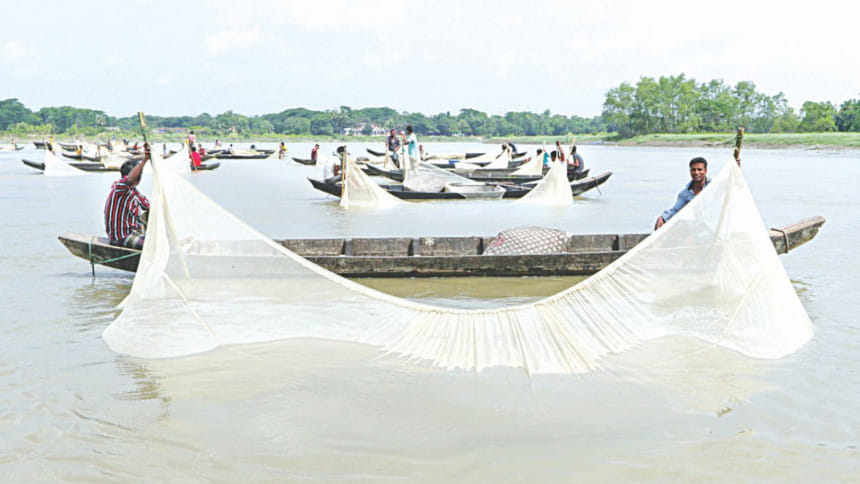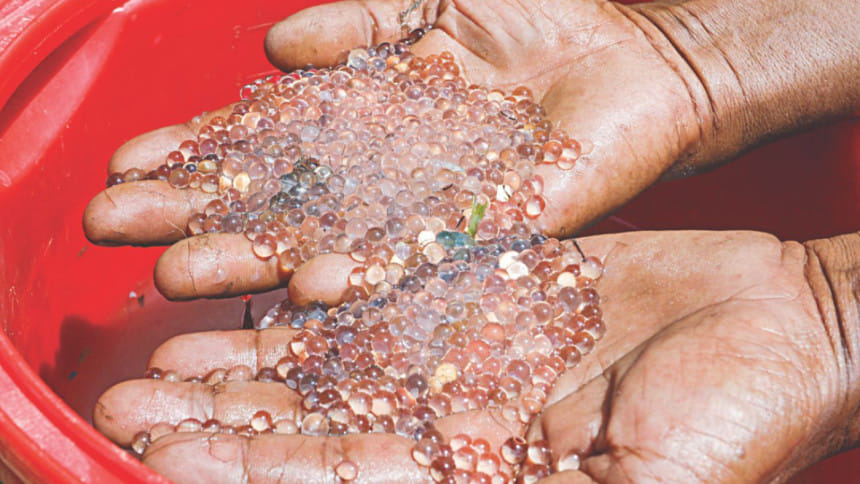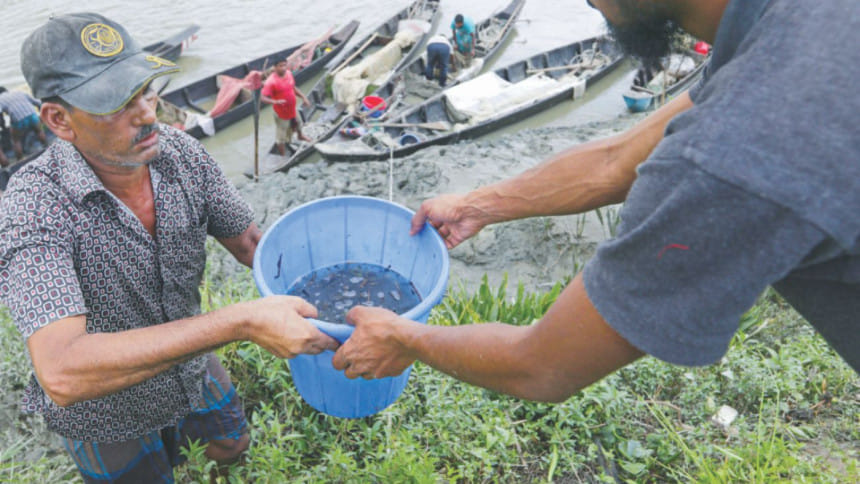Awareness pays off

Fish egg collection from the Halda river, the lone source of natural carp breeding in South Asia, has reached a 10-year high this year.
Experts have attributed this achievement to awareness campaigns and effective steps taken by the authorities concerned.
In the last 10 years, egg collection from the river was not satisfactory. This time, the egg collectors are happy as they could collect a huge amount of eggs.
Broodfish released “sample eggs” in the three days of rain since Tuesday. Keeping eyes on the river deep into the night, the egg collectors in Raozan and Hathazari upazilas were gearing up for collecting the eggs.

The broodfish finally laid eggs across the river early yesterday. Around 1,000 people with 402 boats were collecting the eggs for 12 hours, a record in egg collection in the past 10 years, according to experts and egg collectors.
Elias Hossen, who is jubilant at his egg collection, from Ramdas Hat of Hathazari, told The Daily Star that it was amazing to see the large amount of eggs in the river.
Every boat became full of collected eggs, a happy scene that not seen by the locals for a long time, he said.
“The releasing of egg coincided with tide which helped us get eggs for 12 hours. Usually, the collectors get five to six hours to do so,” he said, adding that the environment was also favourable to gather eggs.
Asha Barua, from Madarsha area of Hathazari, 55, who has been gathering eggs since his boyhood, said, “We were keeping an eye on the river. The broodfish laid eggs at 2:30am and amassing of eggs continued until this [yesterday] noon.”
Egg in plenty reminds him the past glory of the river when it used to produce such an amount of eggs, he added.
Manzoorul Kibria, director of Halda River Research Laboratory and also professor of zoology at Chittagong University, attributed this high production of eggs to awareness of locals and effective steps of the government.
“It's a record collection. During the last 10 years, Halda did not show such a good sign. The decision to stop sand lifting from the river, lower the rubber dams, ban on fishing from Moduna ghat to Sattar ghat in the river to save the broodfish and the local's awareness contributed to this production,” he added.
He said around 22.680kg of eggs have been collected this year.

In 2017, the amount was 1,680kg, which was 735kg in 2016. The egg collection reached 1,650kg in 2014, while the amount was 4,200kg in 2013, he said.
Shah Alam, senior assistant coordinator of Integrated Development Foundation that runs a project to save the broodfish, told this newspaper that the egg production increased due to awareness of locals who were convinced to save the broodfish for the sake of national interest.
“Now it is the locals who got benefit of their awareness. The Halda is sure to get back its former glory very soon,” he said.
The river in south-eastern Bangladesh originates at Badnatali Hill Ranges in Ramgarh upazila in the Chittagong Hill Tracts, and flows through Fatikchhari upazila, Bhujpur thana, Hathazari upazila, Raozan upazila and Chandgaon thana of Chittagong, and falls into the Karnaphuli river.
The 98km long river has a turbulent tributary, the Dhurung river, which joins Purba Dhalai about 48km downstream. The river is navigable by both big and small boats.

 For all latest news, follow The Daily Star's Google News channel.
For all latest news, follow The Daily Star's Google News channel. 





Comments